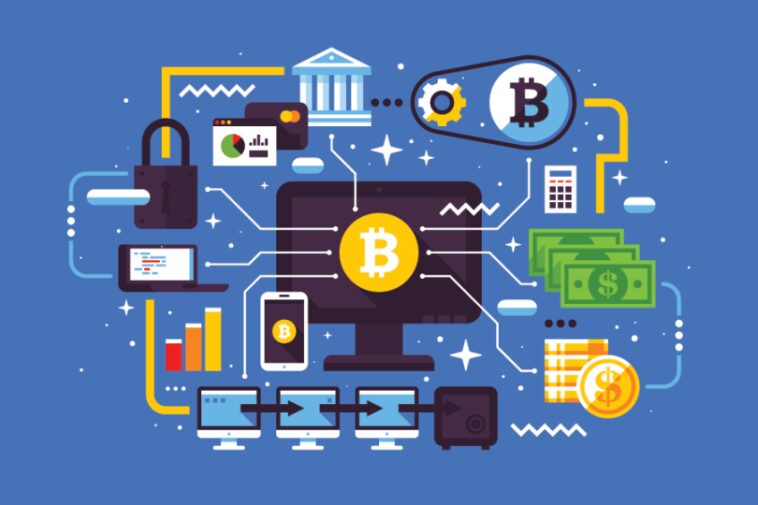Blockchains are digital databases that store information in blocks. These blocks are connected together through cryptography.
When a new block is added, all other blocks must be updated to reflect this modification. This creates an audit trail of events and helps protect data integrity by discouraging data tampering.
It is a distributed database
Blockchain is a database that stores data across multiple computers located across different locations. Unlike the traditional model of one database server, distributed databases consist of multiple servers connected by a network. Blockchain can be used in many applications and has several advantages over traditional databases.
Distributed databases can often save companies money and boost efficiency by spreading workloads around. Furthermore, they often enhance security by eliminating intermediaries.
Another advantage of a distributed database is its flexibility to expand to accommodate new workloads. This is especially helpful if you require extra storage as your business expands, requiring you to accommodate an influx of data.
One major advantage of a distributed database is its ability to synchronize data across all its sites, guaranteeing accuracy. This is accomplished through replication, which creates copies of each data item that can reside at multiple locations for ease of accessibility for users who depend on this information.
Data storage and management is an essential factor for businesses that depend on their data to run smoothly and efficiently. It can be particularly advantageous to organizations with multiple branches or storefronts located across different geographical areas, as it enables those branches to access data at any time without causing disruptions.
A distributed database can speed up transaction processing by enabling each one to be verified and completed within a short time. This is especially advantageous for cross-border trades or transactions that must be processed outside normal business hours.
Distributed databases tend to be cheaper than centralized ones and can scale up with changing demands. However, they must be deployed carefully in order to guarantee they provide the optimal solution for your requirements.
Therefore, it is essential to carefully consider all factors when making a decision regarding whether to utilize either distributed databases or centralized ones. This includes cost, security and what type of data will be stored within the database.
It is decentralized
Blockchain is a decentralized database that stores the history of any digital asset. It uses cryptographic hash functions to guarantee records remain secure and unalterable, eliminating the need for third-party verification and cutting down on transaction fees.
Blockchain technology is decentralized, meaning anyone can access and utilize it. This makes it ideal for cryptocurrencies – digital coins used to purchase goods and services. Furthermore, this decentralized structure offers several other applications such as smart contracts that automatically execute transactions once certain conditions are met.
Blockchain can be utilized to store information about supply chains. This helps companies detect and trace low-quality products more easily. Furthermore, companies are able to share confidential data more securely without worrying about hackers or other security risks.
As such, it can be an invaluable asset for businesses of all sizes. Not only does it enhance efficiency and help them better serve their customers, but it also allows them to better focus on what matters most: growing the business!
It can also be utilized for storing confidential and sensitive data, such as medical records or financial details.
Blockchain ledgers differ from traditional databases, which are usually controlled by a central authority; instead they’re shared between multiple participants and completely transparent. This property of the technology makes it simple to verify transactions and determine who has done what.
Another advantage of electronic payments is their speedy processing time. This eliminates the need to go through a bank or payment-processing company, which could take up to several days.
Finally, blockchains offer greater security than traditional databases because no one can alter the records stored within them. This is essential for avoiding identity theft and money laundering activities.
Blockchain technology is still in its early stages, but it holds great promise for the future. It can enhance digital commerce, provide financial empowerment to those without access to banking services and create new types of internet-based applications.
It is secure
Blockchain is a decentralized ledger that records information in an immutable, secure manner, providing security and integrity. For instance, it could be utilized to track transactions, copyright rights, product inventories, state identifications and more. Furthermore, its value-adding properties allow it to secure royalties by eliminating the need for third-party verification of transactions.
Cryptographic hash functions and proof of work (PoW) guarantee all blocks in a chain are valid, making it difficult for an attacker to corrupt a blockchain system. Furthermore, many blockchains feature byzantine fault tolerance (BFT), making it even more challenging for hackers to take control of the entire network.
Furthermore, each node in a blockchain maintains its own copy of the chain and regularly verifies that data it stores matches what is recorded. This guarantees that no single computer or group of computers can alter or corrupt copies of the chain, further increasing security levels.
Another essential feature of blockchain security is append-only; this ensures no one can alter or delete information that has already been added to the chain. This provides additional protection against tampering and fraudulence.
Furthermore, blockchain networks employ a strong consensus-based security model, meaning new data cannot be altered until it has been confirmed by a majority of network participants. This guarantees that if an adversary attempts to alter an invalid block, all beneficial participants will ignore it, making manipulation of the network virtually impossible.
These characteristics are paramount for the security of a blockchain network, necessitating robust implementation of cybersecurity frameworks, testing methodologies and secure coding practices. These measures are necessary for protecting a blockchain solution against cyberattacks, data breaches and online frauds.
However, despite their advantages, hackers have several methods by which they can infiltrate a blockchain network and cause harm. These include:
It is fast
Blockchain technology is an indispensable tool that makes transactions more secure and cost-effective. It reduces processing times from days to minutes, enabling participants to exchange value items without the need for a third party intermediary. Furthermore, this eliminates duplication of effort since each party has access to a common ledger.
It has a variety of applications, such as legal contracts, property sales, medical records and any industry that needs to keep track of actions or transactions. Furthermore, it could be utilized to verify and distribute digital assets like cryptocurrencies as well as fiat currency.
One of the key advantages of blockchain technology is its inexhaustibility; this makes it ideal for processing transactions outside normal business hours. This is especially helpful when doing cross-border trades, which often take longer due to time zones and payment confirmation requirements between both parties.
Blockchain’s speed can also be measured through its transaction speed (TPS). TPS stands for Transactions Per Second and it measures how many transactions a network can process per second. Other parameters that influence blockchain speed include transaction finality time and scalability.
Generally, networks with higher TPS tend to be faster than those with low TPS. However, even these can be slow due to the requirement of having a large number of nodes for approval and verification processes.
Scalability is a major obstacle to the widespread adoption of blockchain. Until this issue is addressed, scaling the network up to accommodate an ever-increasing number of transactions will remain difficult.
Blockchain technology is making blockchain scaling exponentially more scalable as new companies enter the scene. For instance, Solana, launched in 2017, boasts an incredible 3,000 TPS with a hybrid proof-of-stake/proof-of-history consensus mechanism.
Additionally, its lower fees and low network congestion make it a desirable platform for launching Dapps, games, as well as NFTs (non-fungible tokens). Furthermore, an increasing number of businesses are turning towards blockchain as a payment method due to its security, transparency and immutability.



